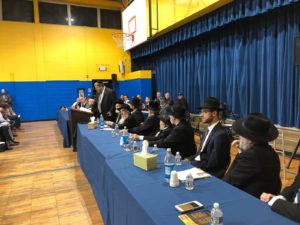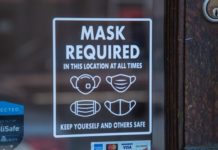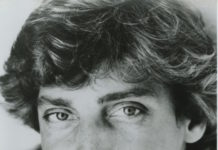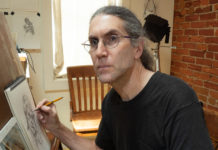As of June 28, 46.3% of the United States population is fully vaccinated against COVID-19, according to the Centers for Disease Control and Prevention.
But with vaccination rates slowing to an average of about 735,000 jabs daily, it appears as though the U.S. will fall short of President Joe Biden’s goal of 70% of the population receiving at least one shot by July 4, with that total currently at 54.1%.
Still, the task of reaching herd immunity at this stage of the pandemic does not equally rest on everyone’s shoulders, as 70% of Philadelphians have already received their first dose of the vaccine by mid-June, Billy Penn reported.
And, anecdotally, several Jewish communities in Philadelphia were more than willing to get vaccinated when the opportunity arose.
Reform Congregation Keneseth Israel, in partnership with the Jewish Federation of Greater Philadelphia, Kehillah of Old York Road and Wellness Pharmacy Services, held two vaccine clinics in March and April with 1,600 and 1,000 attendees, respectively, Executive Director of Keneseth Israel Brian Rissinger said.
Yet vaccine interest spanned across synagogue denominations.
Rabbi Yehoshua Yeamans of B’nai Israel Ohev Zedek, an Orthodox shul, said that 90% of his congregants received the vaccine “at the first possible chance.”
The Philadelphia Department of Public Health does not disaggregate vaccine data based on religion or ethnicity, so it is unclear what percentage of the Jewish population, or of any other religious group, is vaccinated.
However, enthusiasm for, or at least uptake of, the COVID-19 vaccine seems high across the board for Philadelphia Jews, begging the question of why, and what has driven the local Jewish community to pursue the vaccine.
“Our health and our well-being and to save lives is first and foremost within Jewish law,” said David Kushner, director of government relations and special projects for Amudim Community Resources, Inc., who has worked for years as a liaison between the Jewish community and local elected officials.
The concept of saving a life as a priority, known as pikuach nefesh, dictates that the saving of a life supersedes virtually all other halachot.
According to Mark Leuchter, professor and director of Jewish studies at Temple University, “It is pikuach nefesh to put on a mask, or do social distancing, or work from home or, in this case, to get a vaccine.”
But beyond the swathes of ways to interpret pikuach nefesh and its applications to the COVID-19 vaccine, Yeamans believes the case for vaccination can be made because listening to the medical establishment is endorsed by Jewish law.
Yeamans felt it was his duty to send emails to congregants, stating that because it was a medical recommendation to receive the vaccine, it was also the Jewish thing to do.
His congregation didn’t dissent: “Nobody was upset that we spoke about it openly.”
But that’s not to say community members weren’t skeptical.
He was sympathetic to those few congregants who chose not to get the vaccine, who were unconvinced of it, because of its expeditiousness, or due to an exceptional and negative vaccination outcome drawn out by the media.
“It’s a personal decision,” Yeamans said.
Conversations around vaccine willingness in the community took place at the tail end of a divisive national election cycle, where, according to Leuchter, the Trump administration bred an era of opposition to secularism. Leuchter defines secularism as “a society that is not governed by a religious tradition, but that enables people to have freedom to practice that tradition or not practice that tradition.”

But for some, whose religious values guide them to make decisions — including medical decisions — secularism may be seen more of a threat than a freedom.
“From within those deeply religious and conservative communities, secularism is a temptation away from something sacred and something holy, and therefore something safe,” Leuchter said.
Conversely, interest or trust in the vaccine does not appear magically. Kushner attributed Philadelphia’s high vaccine rates, both in, presumably, the Jewish community and beyond, to the efforts of the city to educate and make resources accessible.
In October, Kushner worked with the city’s Department of Public Health to host a testing site at the Politz Hebrew Academy. More than 600 people were tested.
Kushner credits “the eagerness on the part of public health officials, as well as the medical community, to do outreach and education to the general public, and to specific subsets of the community that have unique cultural needs, such as the Jewish community.”
He has since helped to organize conversations between Orthodox community members and elected officials to enhance “open dialogue and a positive working relationship between the community and local officials/agencies.”
While some in the community needed educational opportunities in order to make the decision to get vaccinated, others just needed time or to see that others in the community had also gotten the shot, Kushner said.
Morals or dogmas aside, for some Jews in the community, the decision to become vaccinated was a practical one: They wanted a return to normalcy, to their shuls, to community connection.
Even if individuals were skeptical about the vaccine, according to Yeamans, they still understood that vaccination was required for the synagogue to resume in-person activity.
“They realized that if we work together, everybody does, it’s going to help remove the masks, remove the social distancing, which it has,” Yeamans said.
When Yeamans’s shul hit the 90% vaccination mark, it was a “no-brainer” to resume in-person activities.
As much as Yeamans and Kushner have advocated to their community about the COVID-19 vaccine, neither would take the credit for their communities’ behaviors.
According to Kushner, “We owe a debt of gratitude to our community leaders, to our public health officials and to the medical professionals.”
And as these leaders and officials guided the community, Yeamans said he was grateful that the community was there to listen.
[email protected] | 215-832-0741






